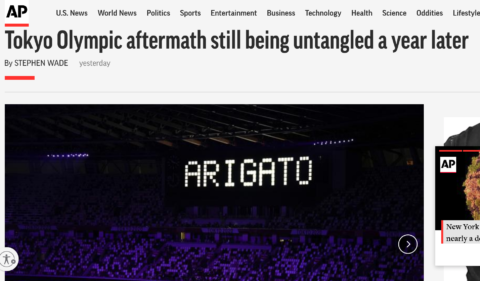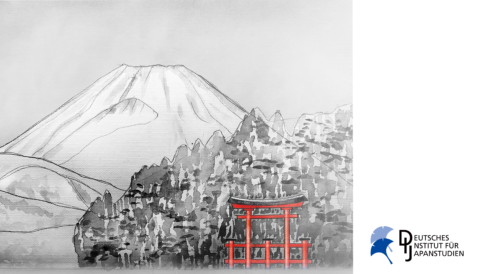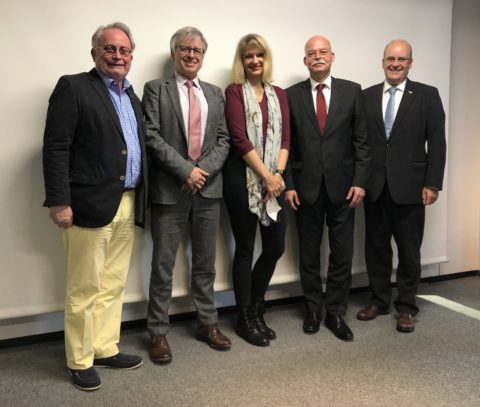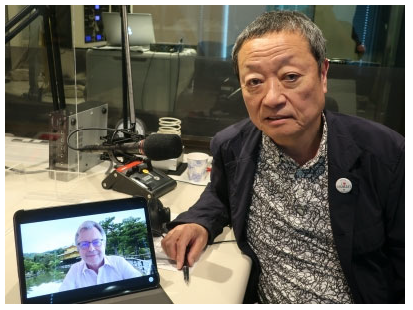Veranstaltungen und Aktivitäten
Job opening: Research Fellow in Asian Infrastructures at NUS

The Asia Research Institute (ARI) at the National University of Singapore (NUS) invites applications for one Research Fellowship (Postdoctoral/Research Fellow) in Asian Infrastructures. This position is funded by a new research partnership between the DIJ and ARI which was concluded in July 2022. The position is based at NUS and the successful applicant is expected to commence duties in January 2023, or as soon as possible thereafter. Applicants are expected to hold a PhD degree (or awaiting conferment) and have research interests in a relevant area of the social sciences and a record of publication (or potential to deliver) in high impact journals and/or reputable publishing houses. The initial appointment will be for a period of two years, with the possibility of renewal for two more years. Closing date for applications is 30 September 2022. For more details on this position and the application procedure see here
Barbara Holthus comments on legacy of Tokyo Olympics

One year ago the Tokyo Olympics were opened. What remains as their legacy? DIJ deputy director Barbara Holthus, who was a volunteer at the Games, commented on the Games‘ legacy and Japan’s future Olympic ambitions for an AP article (21 July 2022). „People were so upset that Thomas Bach pushed the Olympics down everybody’s throat without consideration for Japanese sentiments“, she said. „And now they want to it again without asking the people of Sapporo.“ But Barbara also noted a positive shift in volunteers‘ attitudes towards their involvement in the Games: whereas one year ago many of them „didn’t want to be seen in their neighborhood with the uniform on“, the „bad taste of the uniform now is kind of gone“, she explained. For more information on research related to the Tokyo Olympics, see the DIJ’s special project on the Tokyo Olympics and the open access book publication Japan Through the Lens of the Tokyo Olympics.
New research partnership with Asia Research Institute

DIJ director Franz Waldenberger has signed a new research partnership on Asian infrastructures with the Asia Research Institute (ARI) at the National University of Singapore (NUS). The partnership is interested in infrastructures in a broad sense, focusing on knowledge networks, health and migration infrastructures, transport infrastructures, digital and financial infrastructure networks and nodes as well as China’s Belt and Road Initiative. This new research partnership with ARI replaces the Max Weber Foundation Research Group on Borders, Mobility and New Infrastructures that was established in the Faculty of Arts and Social Sciences at NUS in June 2017. The new DIJ-ARI partnership will be coordinated jointly by ARI director Tim Bunnell, James D. Sidaway (Department of Geography, NUS), and Franz Waldenberger. See also announcement on ARI’s website here
Season’s Greetings and best wishes for the New Year
 Das Deutsche Institut für Japanstudien wünscht erholsame und frohe Festtage und einen guten Start in ein erfolgreiches Jahr des Tigers!
Das Deutsche Institut für Japanstudien wünscht erholsame und frohe Festtage und einen guten Start in ein erfolgreiches Jahr des Tigers!
The German Institute for Japanese Studies wishes you a happy holiday season and a successful Year of the Tiger!
ドイツ日本研究所一同、皆様のご多幸と来るべき新年が成功の年になることを祈念いたします。
Germany’s new Ambassador to Japan visits DIJ

On October 20, Germany’s new Ambassador to Japan, Clemens von Goetze, visited our institute. He was accompanied by Lothar Mennicken, the Embassy’s Counsellor for Science and Technology. DIJ director Franz Waldenberger, deputy director Barbara Holthus, and administrative director Joachim Röhr informed the Ambassador about the institute’s ongoing research activities. Franz Waldenberger also presented the Ambassador with a selection of latest DIJ publications. The Ambassador expressed great interest in the DIJ’s expertise in different aspects of contemporary Japan, in particular society and politics. Before assuming his current post, Clemens von Goetze was Germany’s Ambassador to Israel (2015-18) and to the People’s Republic of China (2018-21). We are very pleased and honoured that Ambassador Goetze took the time to visit our institute one day before presenting his credentials to the Emperor at the Imperial Palace. Photo (left to right): Joachim Röhr, Franz Waldenberger, Barbara Holthus, Clemens von Goetze, Lothar Mennicken.
DIJ expertise on Tokyo Olympics in international media

The Tokyo Olympics are now history — but what remains as their legacy? During the past few weeks several international media have interviewed DIJ director Franz Waldenberger and deputy director Barbara Holthus as well as principal researchers Sonja Ganseforth and Torsten Weber on different aspects of the Games. Franz Waldenberger commented on the exploding costs of Tokyo 2020 for Tagesschau online and the DLF Players podcast. Barbara Holthus appeared in live TV interviews on Al Jazeera, the BBC and was quoted in AP News, DLF radio, HR radio, Welt, and several other German and international media. An interview with Sonja Ganseforth on the anti-Olympic protests appeared in Japanese in the Mainichi daily newspaper. Comments by Torsten Weber on Tokyo’s Olympic past appeared in the Neue Zürcher Zeitung, Frankfurter Rundschau, Münchner Merkur, and Weekendavisen. For more information on research related to the Olympics, see the DIJ’s special project on the Tokyo Olympics and the open access book publication Japan Through the Lens of the Tokyo Olympics.
„Sophistication with understatement“ – Franz Waldenberger interviewed on Japanese radio

DIJ director Franz Waldenberger shared his views on Japanese and German society in an interview series with Oguro Kazumi, the host of Lohas Talk on J-Wave radio. Franz introduced the institute, its research, and his own interests in Japanese society and economy. He revealed that he had a „positive culture shock“ when he first came to Japan and that he was impressed with the unique „atmosphere“, importance of „human relations“, and „politeness“. The talk also touched upon women in politics, work-style, and work-life-balance. „In Germany, above all result matters but in Japan people are praised for their efforts“, he observed. On energy politics, Franz criticized that calculations of the costs of nuclear energy in Japan usually omit the costs for the disposal of nuclear waste. He praised the appeal of Japanese culture which, however, the Japanese themselves did not promote enough due to their attitude of „sophistication with understatement“. An audio file of the talk (in Japanese) is available here.
„No word on vaccines, no testing at all.“

Several international media have interviewed DIJ deputy director Barbara Holthus about Olympic volunteering and the risks of holding the Tokyo Olympics amidst the ongoing pandemic. Barbara appeared on the Canadian broadcaster CBC’s News Morning Show (video), the Australian news programme Ticker News (video), and CNN’s news show The Lead (video). Barbara criticized the lack of vaccination opportunities for volunteers and said that it was too dangerous to hold the Olympics this year. Barbara was also interviewed by German news agency DPA and her statements appeared in several German news outlets, including Zeit online and FAZ online (in German). For more information on research related to the Olympics, see the DIJ’s special project on the Tokyo Olympics and the open access book publication Japan Through the Lens of the Tokyo Olympics.





 Open Access
Open Access 
